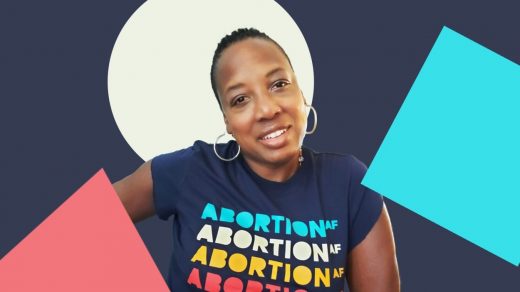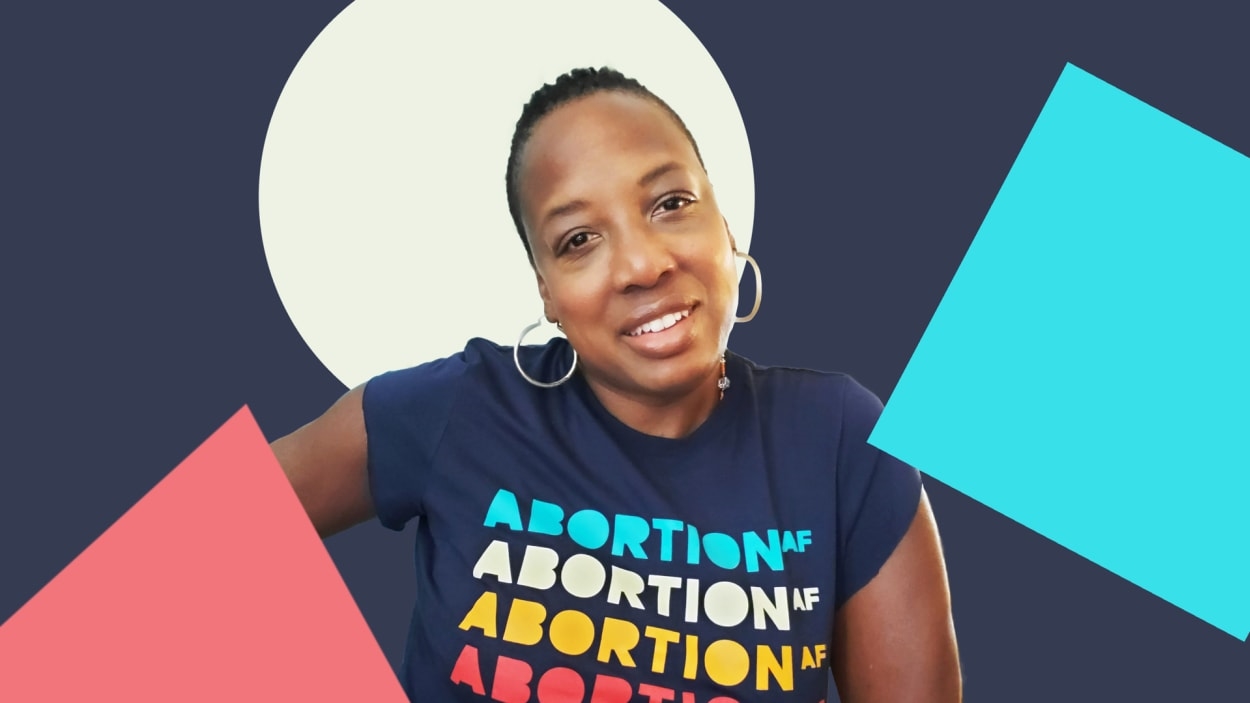Planned Parenthood lawsuit: Former employee alleges widespread racism in the workplace
Nicole Moore had spent a few years at Abortion Access Front, an abortion rights organization that advocated for independent providers across the country, when she started to feel restless. “I was really satisfied, but I thirsted to work more directly with communities of color,” she told Fast Company. “Particularly after traveling down south to many of the abortion clinics there, I really felt a calling to work with Black and brown folks.”
In 2019, she came across a role that seemed tailor-made for her: Planned Parenthood was looking to hire someone who would focus entirely on outreach to communities of color. Moore had some reservations. Planned Parenthood had a reputation among certain workers in the reproductive justice space for being a difficult if not hostile work environment for women of color—long simmering “issues around white supremacy and discrimination,” as Moore describes it. But it also sounded like her dream job, and Moore was cautiously optimistic about the potential impact she could make at an organization with Planned Parenthood’s reach—even more so since Alexis McGill Johnson, a Black woman, had recently taken the reins as interim president. At the start of 2020, Moore joined Planned Parenthood’s national office in New York City as the director of multicultural brand engagement.
By last fall, however, less than two years into her tenure, Moore had been fired. Last week, she filed a lawsuit against Planned Parenthood, alleging racial discrimination and retaliation. In a 50-page complaint, Moore documented a pattern of discrimination that she claims led to her ousting. The suit hinges on Moore’s personal experience with racism—particularly at the hands of a senior manager who, she alleges, mistreated her routinely, along with other Black female employees—but also claims that leadership consistently failed to address allegations of racist behavior across the organization. Moore says that after raising concerns about Black employees who were overworked and undervalued, she was put on a performance improvement plan. According to Moore, Planned Parenthood’s cultural issues also had a direct impact on the organization’s commitment to serving marginalized communities, and observances like Black History Month were “consistently deprioritized.”
Planned Parenthood disputed Moore’s allegations in a statement to Fast Company. “Planned Parenthood Federation of America’s top priority for our dedicated staff is building a culture of diversity across the organization to fulfill our mission of reproductive health for all,” said Susan Manning, the interim general counsel of Planned Parenthood Federation of America. “Our staff is at the core of who we are and we work everyday to ensure a safe and welcoming environment. We strongly dispute the plaintiff’s allegations against the organization and categorically deny her claims of discrimination. Planned Parenthood will vigorously defend against this suit, and welcomes the opportunity to share the complete picture.”
Moore’s experience isn’t without precedent. In recent years, Planned Parenthood has faced increased worker activism as organizing efforts and allegations of racism have spread across its national offices and local affiliates. The national offices in New York City and Washington, D.C., have unionized, along with a handful of affiliates; this year, the fall of Roe v. Wade—along with staffing shortages and high burnout during the pandemic—led affiliates in Massachusetts and the Midwest to follow suit. In response to the racial uprising sparked by George Floyd’s murder, staffers went public with complaints about the head of Planned Parenthood’s New York affiliate, Laura McQuade, who they accused of abusive behavior and discrimination against Black employees. (She was let go soon after.) In October 2020, the results of an internal audit commissioned by Planned Parenthood were leaked to BuzzFeed News, which revealed that Black employees at the national office—Moore was among them—felt they were mistreated. Those findings also echoed many of the allegations in prior BuzzFeed News reporting about the racism and discrimination faced by affiliate employees.
Both the audit and Moore’s account suggest that Planned Parenthood had long been aware of its issues with race but had not taken significant action. Even after the BuzzFeed News leak, Moore alleges that internally, many leaders seemed more preoccupied with the leak itself and the potential blowback from donors, despite the mounting public pressure and Planned Parenthood’s insistence that the assessment proved its commitment to rooting out racism. “The tone was: ‘We’re disappointed in this leak,’” she says. “‘We’re going to get to the bottom of who spoke to the press. This is a betrayal of the trust of every Black employee.’” But Moore says she and other employees understood why it was leaked, likely by someone who was frustrated with the status quo and convinced that nothing would change without media attention. “I didn’t feel like somebody did it to maliciously harm Black folks,” she says. “I think that it was done to save Black folks.”
Over the years, Planned Parenthood has wrestled with its legacy—most notably, putting distance between the organization and Margaret Sanger, who founded Planned Parenthood during World War I, but who was also a proponent of eugenics throughout the 1920s. In a New York Times op-ed last year, McGill Johnson (who had, by this point, been elevated to the permanent role of president and CEO) wrote that Planned Parenthood would “no longer make excuses or apologize for Margaret Sanger’s actions.” That included renaming the New York affiliate’s clinic in Manhattan and removing Sanger’s name from awards, as part of a broader undertaking in which Moore herself had played a key role. “We are committed to confronting any white supremacy in our own organization, and across the movement for reproductive freedom,” McGill Johnson continued. “Some might see this as virtue signaling, but Planned Parenthood is taking this work seriously.” She cited the organization’s diverse senior leadership team and workplace trainings focused on race.
McGill Johnson also inherited an organization that was, by most accounts, reeling from Dr. Leana Wen’s brief, tumultuous stint as president and scrambling to meet the moment as abortion restrictions swept the country. According to BuzzFeed News’s reporting, McGill Johnson was responsible for green-lighting the internal assessment.
But even as Planned Parenthood’s leaders have pledged to do better, both internally and publicly, Moore says the emphasis seemed to be on optics and visible diversity, rather than true equity and inclusion. In her complaint, Moore also claimed that Planned Parenthood’s track record with hires and promotions in her department continued to be an issue at this time, and that Black employees were still assigned more work and fewer resources; there was also notable turnover among staffers of color, according to Moore and previous reporting. From the outside, Moore points out, some people might be impressed with the fact that Planned Parenthood has installed more Black employees in leadership roles (a shift that employees attribute to McGill Johnson, per BuzzFeed News). But representation alone doesn’t necessarily foster an inclusive workplace or radically improve the experience of junior and mid-level employees of color. “You can have a bunch of Black folks in charge,” Moore says. “But if they are also using the same tools that previous leaders were using, then what does it matter?”
One of the leaders who was most vocal about finding the source of the BuzzFeed News leak, Moore says, was a Black woman whose collegial support for Moore seemed to dry up when she raised concerns about racial disparities. “It was shocking,” Moore says. “I would cry over it because I came in there [and] my guard was down. These Black women looked like my cousins and my sister and people in my family.”
Filing a lawsuit against Planned Parenthood wasn’t a decision Moore took lightly, especially in the aftermath of Roe being overturned. Moore knew it could impact her career prospects as well; she’s been unemployed since being fired and was only offered one week of severance pay from Planned Parenthood. “It’s not easy because you put your whole life at stake,” she says. “I don’t know how employable I’ll be after this. But it was almost like a calling that was put on my spirit to do this, and I couldn’t rest until I at least filed this claim. Whether I win or not, I just had to speak my piece.”
Since going public with her lawsuit last week, Moore says she’s continued to hear from staff at Planned Parenthood. “People [are] writing me, telling me they’re still reeling and feeling traumatized working there,” she says. Moore hopes that by coming forward and putting her name behind these allegations, she may be able to effect more change than the largely anonymous complaints that have surfaced in the media until now. While Planned Parenthood’s political clout and outsize influence in the realm of abortion advocacy may have contributed to its inaction, Moore’s objective isn’t necessarily to dissuade people from donating or supporting the organization, which has a significant national impact and serves more than two million patients. “It might not be as easy as saying, ‘Oh, I’m not going to give them money,’ or ‘I’m not going to use their services’ because Planned Parenthood services are essential to so many people, especially people who live in the South and are low-income earners,” she says. “[But] Planned Parenthood is more interested in their donor base, I would argue, than their staff. So that becomes a problem.”
Moore also wants to push back on the notion that workers should sacrifice their well-being and tolerate unhealthy work culture in service of a mission—even one as important as preserving abortion rights and access to crucial healthcare. “We have to say, ‘Actually that is not right,’” she says. “Racism is racism. Toxicity is toxicity. Trauma is trauma, no matter if you’re working for Goldman Sachs, or if you’re working for Planned Parenthood. This case is just one of the ways in which I’m trying to change that narrative.”
Correction: An earlier version of this story misstated that Moore accepted Planned Parenthood’s severance offer.
(31)



